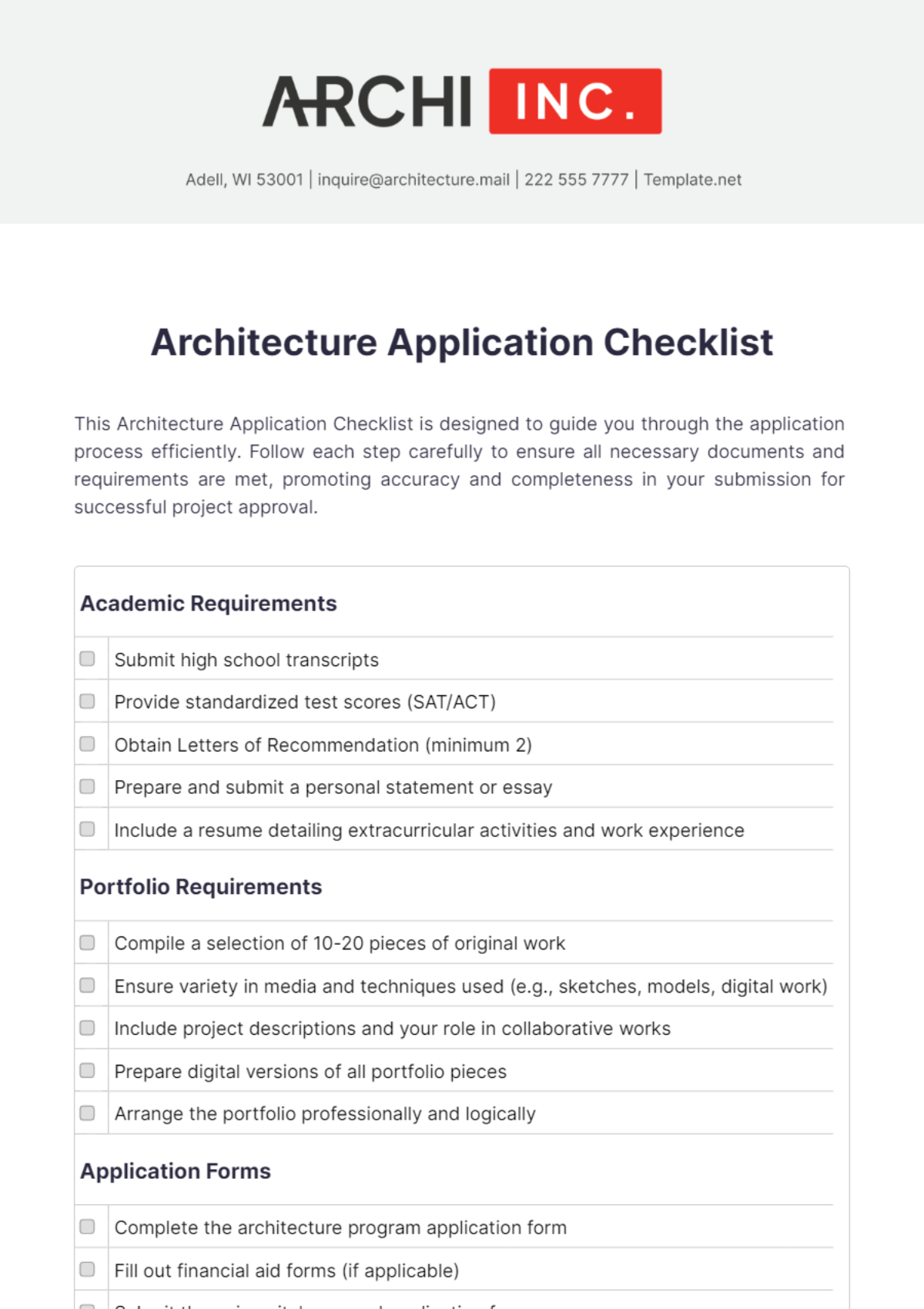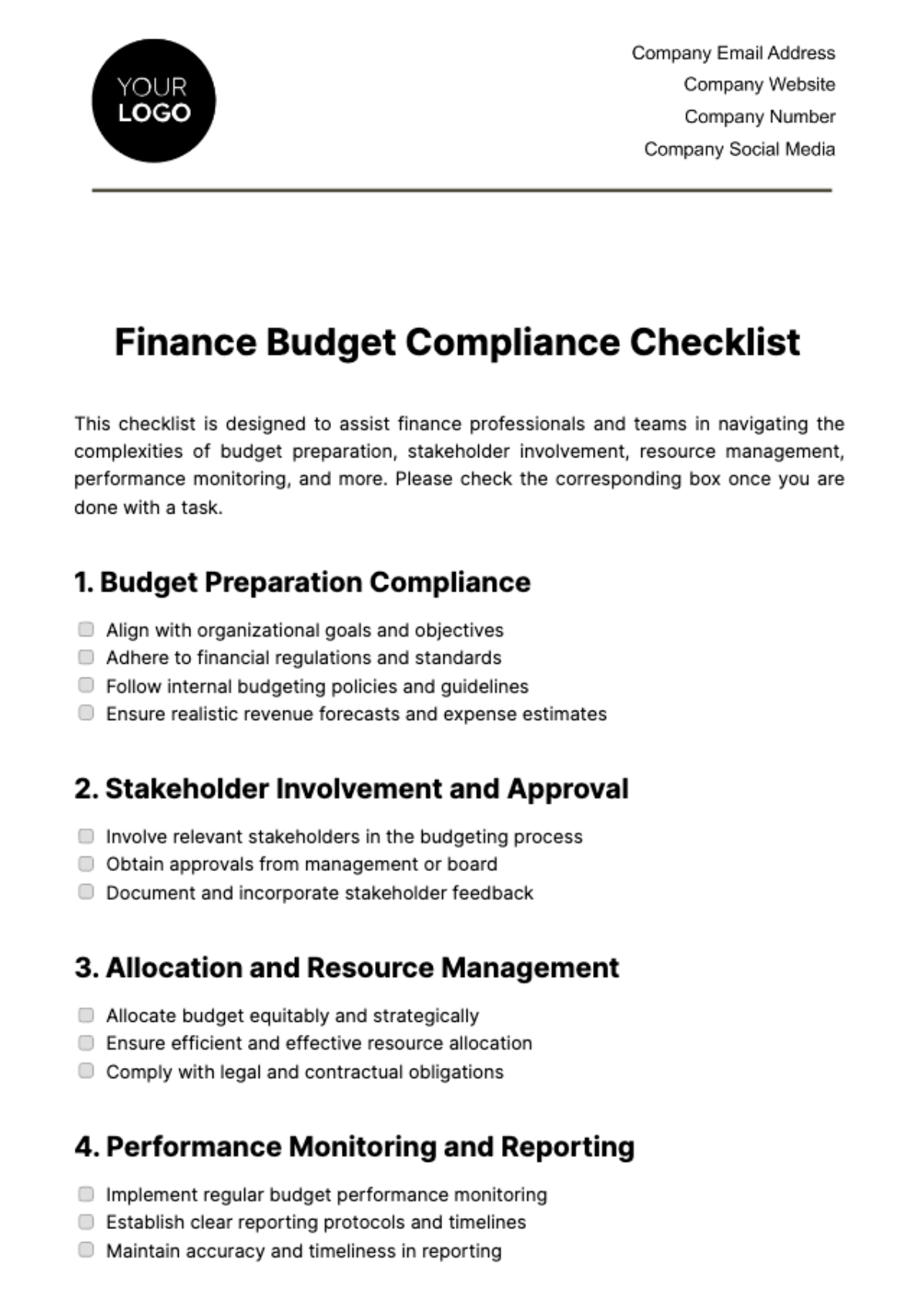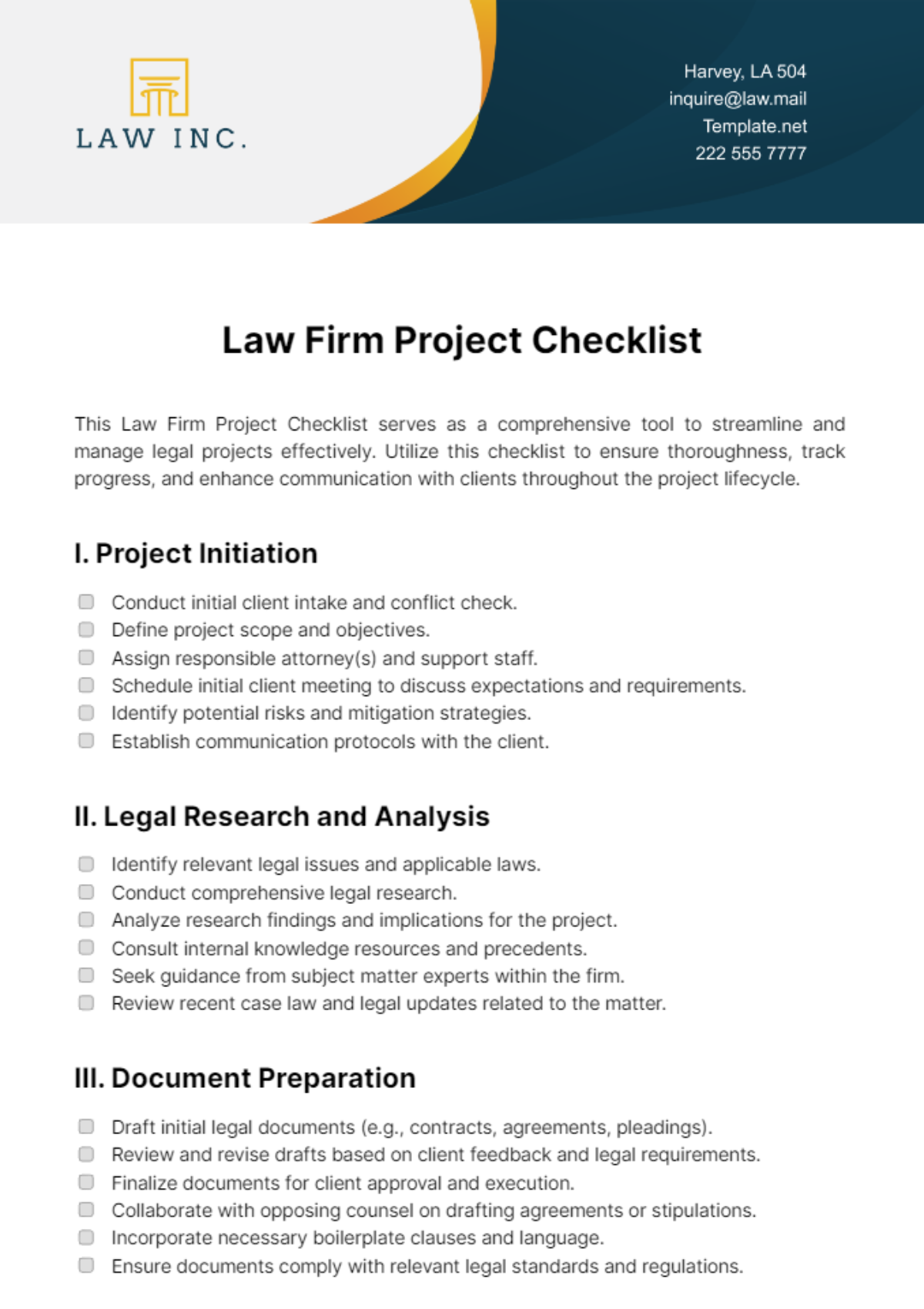Law Firm Project Checklist
This Law Firm Project Checklist serves as a comprehensive tool to streamline and manage legal projects effectively. Utilize this checklist to ensure thoroughness, track progress, and enhance communication with clients throughout the project lifecycle.
I. Project Initiation
Conduct initial client intake and conflict check.
Define project scope and objectives.
Assign responsible attorney(s) and support staff.
Schedule initial client meeting to discuss expectations and requirements.
Identify potential risks and mitigation strategies.
Establish communication protocols with the client.
II. Legal Research and Analysis
Identify relevant legal issues and applicable laws.
Conduct comprehensive legal research.
Analyze research findings and implications for the project.
Consult internal knowledge resources and precedents.
Seek guidance from subject matter experts within the firm.
Review recent case law and legal updates related to the matter.
III. Document Preparation
Draft initial legal documents (e.g., contracts, agreements, pleadings).
Review and revise drafts based on client feedback and legal requirements.
Finalize documents for client approval and execution.
Collaborate with opposing counsel on drafting agreements or stipulations.
Incorporate necessary boilerplate clauses and language.
Ensure documents comply with relevant legal standards and regulations.
IV. Document Review and Management
Collect and review relevant documents and evidence.
Organize and maintain document repository.
Conduct privilege review and redaction as necessary.
Implement document retention policies in accordance with client preferences.
Secure client consent for sharing documents with third parties.
Utilize document management software for efficient organization and retrieval.
V. Communication and Client Interaction
Regularly communicate project updates with the client.
Address client inquiries and concerns promptly.
Obtain client approvals and decisions on key matters.
Schedule periodic status meetings or calls with the client.
Provide clients with strategic guidance and options for decision-making.
Document all client communications and instructions for future reference.
VI. Negotiation and Settlement
Engage in negotiation with opposing parties.
Explore settlement options and negotiate terms.
Draft settlement agreements or other final resolutions.
Anticipate and prepare responses to counterarguments during negotiations.
Assess risks and benefits of different settlement proposals.
Collaborate with mediators or arbitrators to facilitate resolution discussions.
VII. Litigation and Court Proceedings
Prepare for court appearances, hearings, or trials.
File necessary court documents and pleadings.
Represent client interests in court proceedings.
Coordinate with expert witnesses or consultants.
Anticipate and address potential evidentiary issues.
Follow up on court orders and scheduling updates.
VIII. Compliance and Deadlines
Monitor deadlines for filings, responses, and other legal obligations.
Ensure compliance with court rules and procedural requirements.
File documents with courts or regulatory agencies on time.
Maintain a master calendar to track important deadlines.
Implement internal reminders and alerts for upcoming deadlines.
Communicate deadline updates promptly to all relevant parties.
IX. Billing and Financial Management
Track time spent on the project by attorneys and staff.
Generate accurate invoices for client billing.
Monitor project expenses and budget compliance.
Review billing entries for completeness and accuracy.
Provide clients with regular billing statements and updates.
Address client inquiries or disputes regarding billing promptly.
X. Project Closure and Evaluation
Obtain client sign-off on project completion.
Conduct post-project review to identify lessons learned.
Archive project documents and close out matter in firm systems.
Prepare final billing statements and reconcile accounts.
Solicit client feedback on the quality of legal services provided.
Document notable achievements or challenges for future reference.


